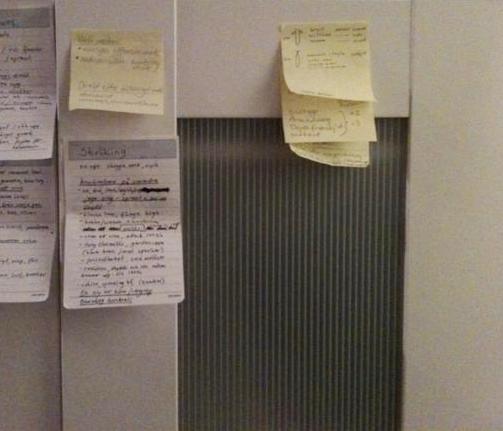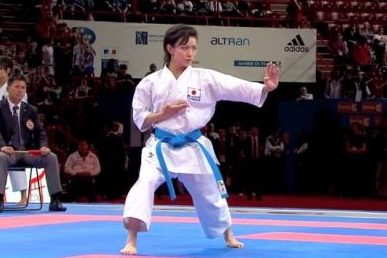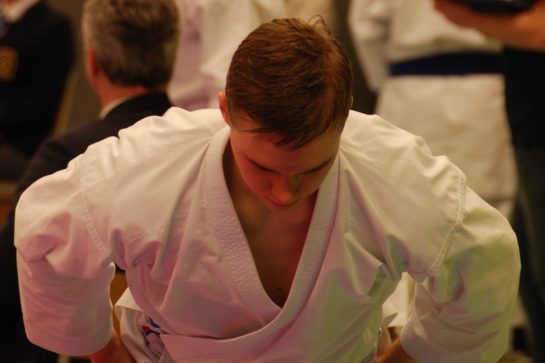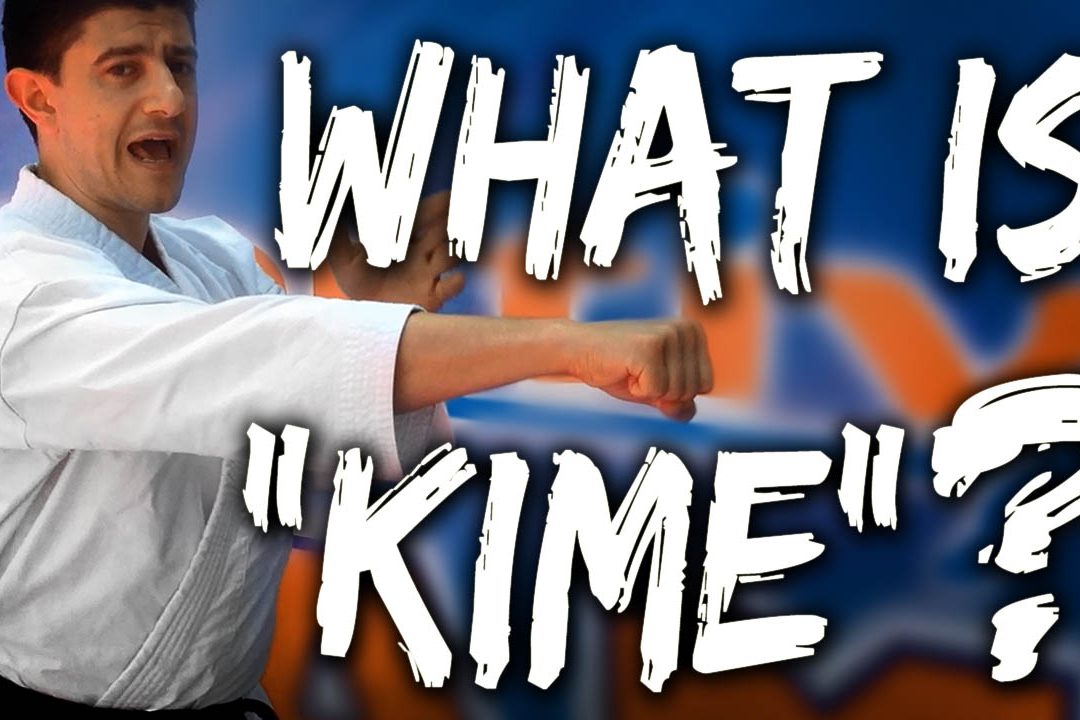Long before there ever was planning, there was improvising.
For milennia humans functioned basically only by thinking on their feet, problem-solving in the here and now. Hungry? Go get food. Sleepy? Go sleep.
At some point, however, survival started to demand planning: the cavemen who picked just the berries at hand and caught the fish only as it swam by didn’t make it through long, cold winters. In order to stay alive, early man needed to cultivate the capacity to think ahead and stow away food for hard times.
This groundbreaking development in human history marked the end of improvising as our primary way of life.
Enter the appointment calendar.
This was what I saw last week when I entered the dojo after a class held by some of our senior instructors.
Apparently, it seems some instructors at our academy feel the need to use small Post-it notes filled with details on techniques and plans for the class. These notes are even so important that they need to be stuck on the walls and mirrors, for everyone to see their holiness.
To me, this way of teaching – besides making you look totally unprofessional – ultimately hinders the progress of both yourself and your students.
An instructor should never be seen with a note in his hand, as long as he isn’t a beginner himself.
(Okay, it’s easy to be humble and say that “we’re all beginners”, but at least a teacher should have more knowledge of the subject at hand than the students, right?)
I mean, imagine you’re going to a boxing gym, and the coach stands with a Post-it note, going “Okay, let’s see what I’ve scribbled down: right cross, left hook, sidestep… and what have I written here… *scratches head* oh, that’s it, a right uppercut! Okay, everyone, let’s work on that combination!”
If I walked into a gym and saw this, I would turn at the door.
I bet you would too.
Now, hopefully this worst-case scenario probably doesn’t exist. But still, making notes for remembering what you’re going to teach for class is a sure way of not evolving as a teacher.
In fact, I think planning ahead in general can be counterproductive.
As I said, for beginning instructors notes and grand plans are okay (but for God’s sake hide them!) but if you strive to one day become a master teacher, then you’ll have to radically change your perspective. Mastering how to manage the dojo and accelerate the students ability in the martial arts – regardless of special learning challenges, learning styles, or age – means challenging yourself in whole new ways.
Challenging yourself as a teacher.
I think Leonardo da Vinci said it best, when he told us:
“Great thoughts are created in small rooms”
We, as instructors, need to limit ourselves. We need to challenge ourselves, push ourselves, and stop being so secure in our positions. Even though the level of the students might not be that high, we still need to think deeper in order to evolve ourselves, and the best way to do that is quite scary.
Ready?
Don’t plan anything.
I really mean N-O-T-H-I-N-G.
Don’t even plan the lesson/class it in your head. And absolutely not on Post-its! Think like an artist.
I know this sounds really bad. It sounds like the class will be really messed up, with everyone doing nothing, because “you haven’t planned”. People standing like zombies, not learning anything, or even leaving in the middle of training.
But it’s the exact opposite.
Like da Vinci reminds us, by not having any notes or plans as a backup (not even hidden notes!), we are forced to make smart, improvised decisions on the spot, by smoothly and professionally evaluating the situation (preferably as the warm up is starting), in order to find the main theme for the lesson.
And when that theme is found, the rest of the class will work itself out very well, as long as you’re alert and find the flow of teaching (which isn’t always as easy as it might sound).
Better than it ever could have if you’d planned it.
Because improvisation and creativity go hand in hand.
And that’s why I’m saying right now that this is only for advanced instructors. No, not even for instructors – for teachers. To me, there is a difference between an instructor and a teacher, and by not planning anything at all for the class in advance, you are taking a big step towards one day becoming a master teacher.
A master instructor can have notes.
A master teacher can’t.
Because he knows it won’t help him anyway.
So, to sum it up, the plan is… Don’t plan. Like we humans were meant to do from the beginning, remember?
Improvise.
Challenge yourself.
Civilization has gotten further and further away from the so-called ‘natural’ man, who uses all his faculties: perception, invention and improvisation.
So cultivate your inner caveman.
I dare you.




13 Comments